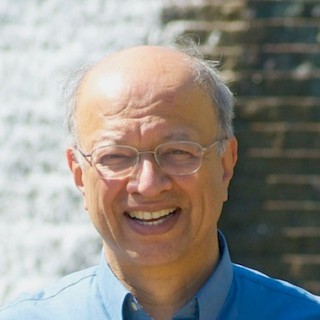Podcast appearances and mentions of Ashok Gadgil
- 9PODCASTS
- 10EPISODES
- 13mAVG DURATION
- ?INFREQUENT EPISODES
- Oct 18, 2021LATEST

POPULARITY
Latest news about Ashok Gadgil
- India should tap into the NRI brain trust Opinion-Economic Times - Oct 25, 2023
Latest podcast episodes about Ashok Gadgil
In the second of two parts, Molly McManus and Saketh Thanneeru continue their discussion with UC Berkeley's Dr. Ashok Gadgil (https://gadgillab.berkeley.edu/) to discuss UV Waterworks and his journey developing and implementing UV systems for water disinfection in low-income settings. Thank you to Light Sources Inc. for sponsoring today's episode! To learn more about what Light Sources Inc. can do for your business, check out www.light-sources.com
In the first of two parts, Molly McManus and Saketh Thanneeru sit down with UC Berkeley's Dr. Ashok Gadgil (https://gadgillab.berkeley.edu/) to discuss UV Waterworks and his journey developing and implementing UV systems for water disinfection in low-income settings. Thank you to Light Sources Inc. for sponsoring today's episode! To learn more about what Light Sources Inc. can do for your business, check out www.light-sources.com
As we rethink our energy use, we focus on the highest polluters, and at a global scale. But energy use at a much finer scale seriously threatens the health and safety of hundreds of millions of people who still cook on inefficient wood stoves in developing countries. Berkeley professor Ashok Gadgil and his students launched the Berkeley Darfur Stove project to design and build efficient and inexpensive stoves. They then created a non-profit to manufacture the $20 stoves in Mumbai. The stoves’ efficiency halves the fuel wood to cook each meal, and the time needed to collect it. Women purchasing fuel wood saved about $260 per year. Series: "Cal Future Forum: Our Changing World" [Science] [Show ID: 33083]
As we rethink our energy use, we focus on the highest polluters, and at a global scale. But energy use at a much finer scale seriously threatens the health and safety of hundreds of millions of people who still cook on inefficient wood stoves in developing countries. Berkeley professor Ashok Gadgil and his students launched the Berkeley Darfur Stove project to design and build efficient and inexpensive stoves. They then created a non-profit to manufacture the $20 stoves in Mumbai. The stoves’ efficiency halves the fuel wood to cook each meal, and the time needed to collect it. Women purchasing fuel wood saved about $260 per year. Series: "Cal Future Forum: Our Changing World" [Science] [Show ID: 33083]
As we rethink our energy use, we focus on the highest polluters, and at a global scale. But energy use at a much finer scale seriously threatens the health and safety of hundreds of millions of people who still cook on inefficient wood stoves in developing countries. Berkeley professor Ashok Gadgil and his students launched the Berkeley Darfur Stove project to design and build efficient and inexpensive stoves. They then created a non-profit to manufacture the $20 stoves in Mumbai. The stoves’ efficiency halves the fuel wood to cook each meal, and the time needed to collect it. Women purchasing fuel wood saved about $260 per year. Series: "Cal Future Forum: Our Changing World" [Science] [Show ID: 33083]
As we rethink our energy use, we focus on the highest polluters, and at a global scale. But energy use at a much finer scale seriously threatens the health and safety of hundreds of millions of people who still cook on inefficient wood stoves in developing countries. Berkeley professor Ashok Gadgil and his students launched the Berkeley Darfur Stove project to design and build efficient and inexpensive stoves. They then created a non-profit to manufacture the $20 stoves in Mumbai. The stoves’ efficiency halves the fuel wood to cook each meal, and the time needed to collect it. Women purchasing fuel wood saved about $260 per year. Series: "Cal Future Forum: Our Changing World" [Science] [Show ID: 33083]
As we rethink our energy use, we focus on the highest polluters, and at a global scale. But energy use at a much finer scale seriously threatens the health and safety of hundreds of millions of people who still cook on inefficient wood stoves in developing countries. Berkeley professor Ashok Gadgil and his students launched the Berkeley Darfur Stove project to design and build efficient and inexpensive stoves. They then created a non-profit to manufacture the $20 stoves in Mumbai. The stoves’ efficiency halves the fuel wood to cook each meal, and the time needed to collect it. Women purchasing fuel wood saved about $260 per year. Series: "Cal Future Forum: Our Changing World" [Science] [Show ID: 33083]
As we rethink our energy use, we focus on the highest polluters, and at a global scale. But energy use at a much finer scale seriously threatens the health and safety of hundreds of millions of people who still cook on inefficient wood stoves in developing countries. Berkeley professor Ashok Gadgil and his students launched the Berkeley Darfur Stove project to design and build efficient and inexpensive stoves. They then created a non-profit to manufacture the $20 stoves in Mumbai. The stoves’ efficiency halves the fuel wood to cook each meal, and the time needed to collect it. Women purchasing fuel wood saved about $260 per year. Series: "Cal Future Forum: Our Changing World" [Science] [Show ID: 33083]
"Culture eats technology" - Professor Ashok Gadgil on saving lives with tech solutions
Professor Ashok Gadgil (UC Berkeley)was originally a theoretical physicist, but during his distinguished career he has had a huge impact on thousands of lives with inventions that supply clean water to the poorest people in South Asia. At our Annual Symposium in May 2018, he explained how he has moved from abstract theory to such impressive and important practice. Image credit: Lawrence Berkeley Nat'l Lab - Roy Kaltschmidt, photographer
Ashok Gadgil speaks to us about simple, low cost solutions to global public health.












